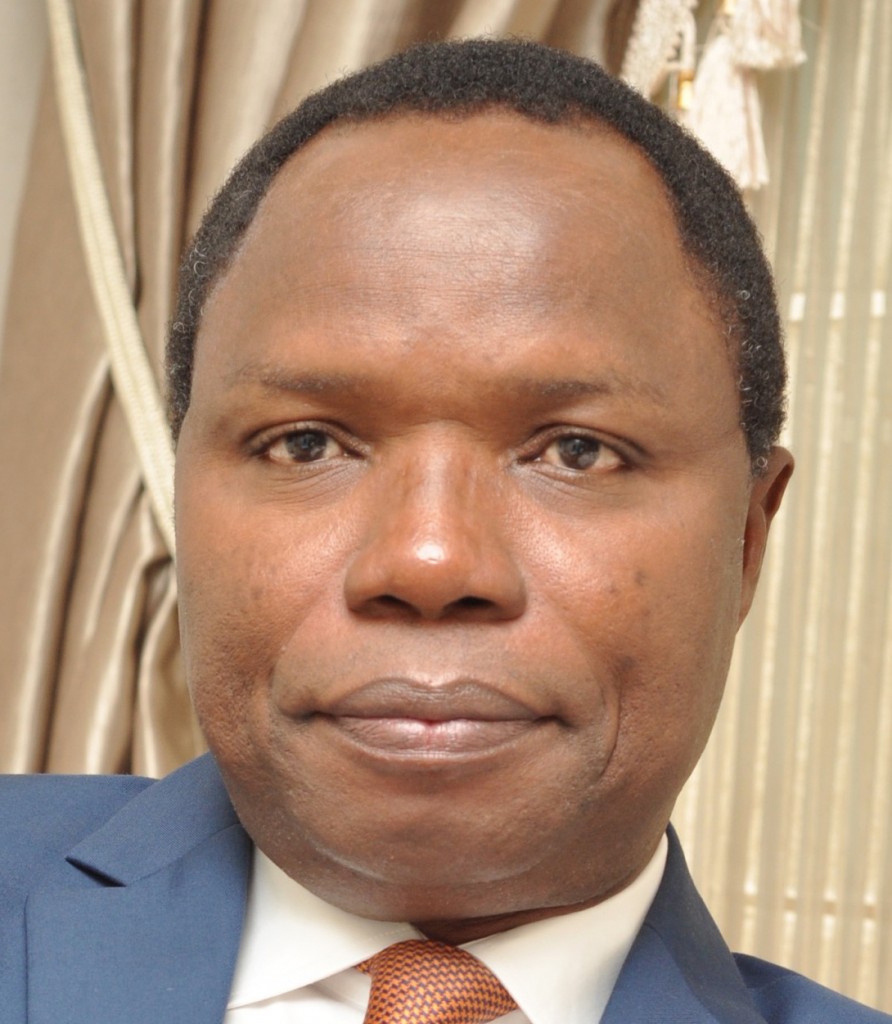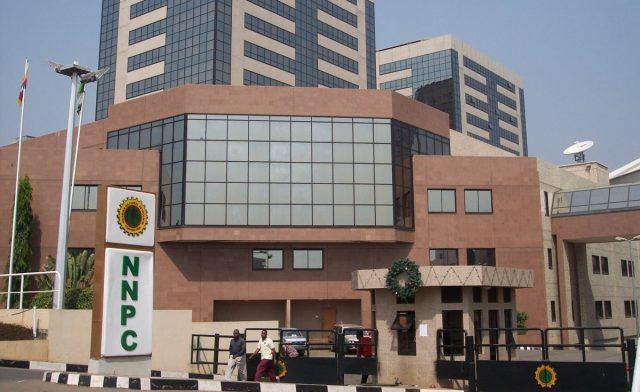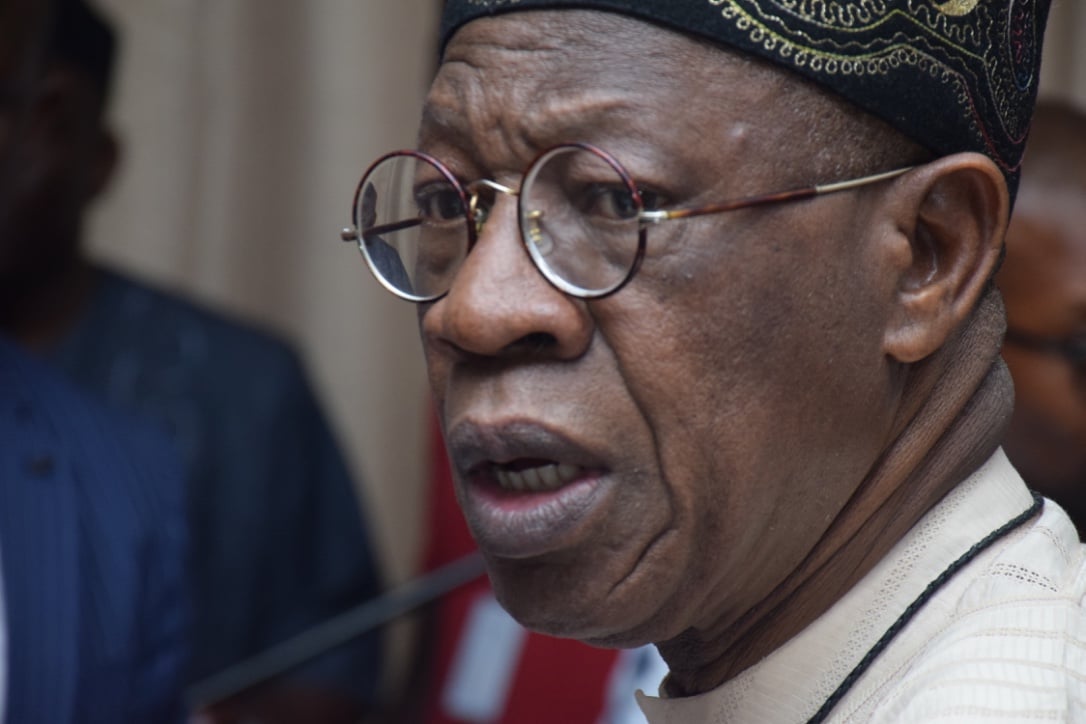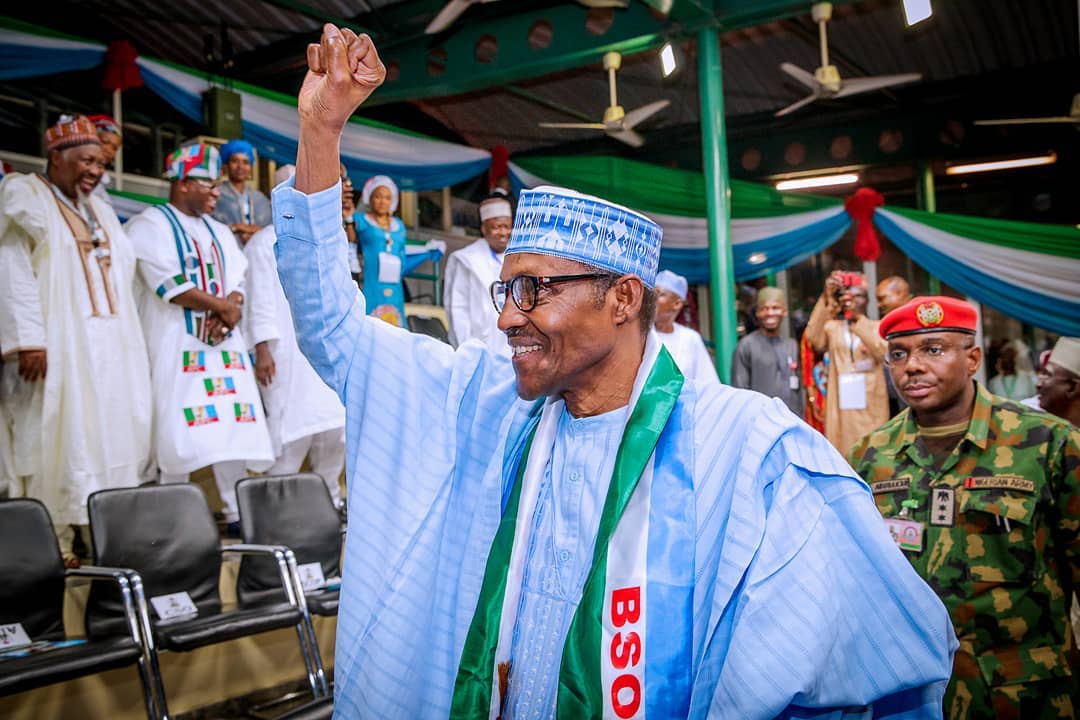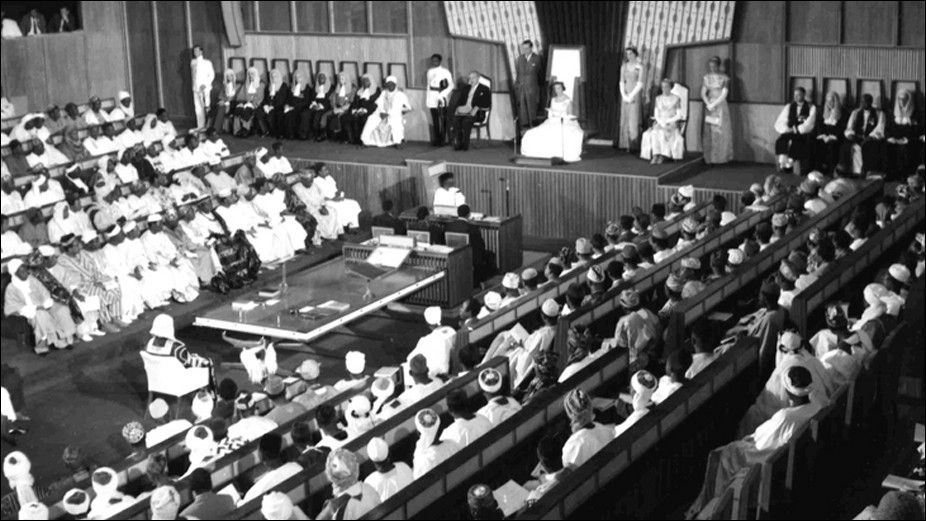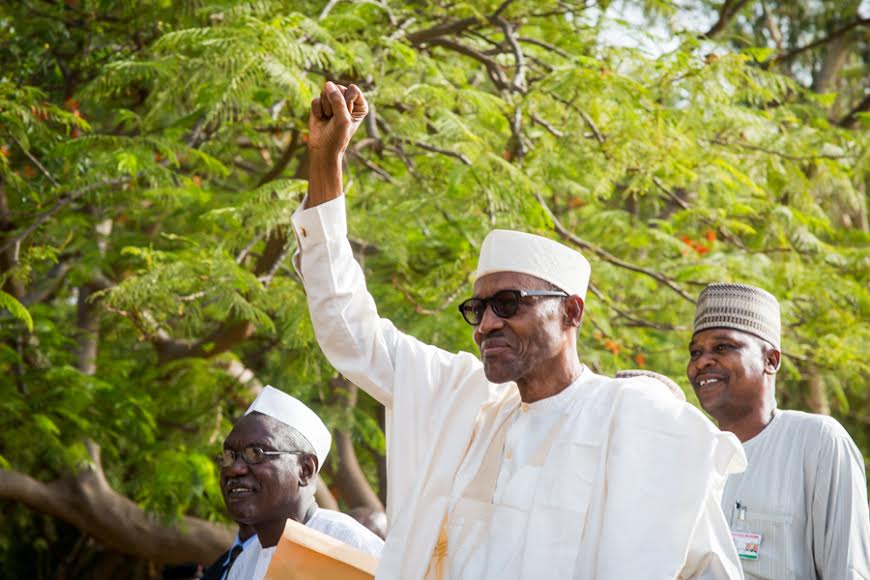Speaking recently as part of his agenda to overhaul the whole economy and position it for double-digit growth, Atiku Abubakar announced his readiness to privatise the country’s state-owned refineries. As a highly successful businessman, Atiku understands that it is only by transferring all our moribund and inefficiently managed state-owned enterprises to private sector hands that we can stop spending trillions of naira annually in subsidising them – and make them pay trillions of naira in taxes to government.
Bismarck Rewane’s reaction to this announcement was shocking. And by titling his comment “Atiku must tell us who he’s planning to sell NNPC to,” Mr Rewane presented the idea of privatising NNPC or selling the refineries as a crime. That an economist of Rewane’s standing could take this ignorant position can’t be more troubling. It has forced me to respond to him, if to set the record straight. I insist that Rewane was biased. For someone who should have known better to have come up with such a title only shows the desperation of APC and their readiness to use people like him to achieve cheap publicity, including playing such an expensive politics with such an important economic driver.
Putting the cart before the horse was deliberate. And carefully wording his comment was done to rubbish the proposed privatisation by simply indicting Atiku. In doing this, he knew that he was just appealing to gullible Nigerians who, not knowing that there are stringent rules and regulations guiding the process of disposing of any public asset, could simply agree with him.
Were Rewane not biased, his most important question shouldn’t be “Why should Atiku privatise NPPC?” It should be and would have only remained “What processes would Atiku put in place to ensure that NNPC is sold to the most qualified company – a company with the best technically capable hands along with financial readiness to pay the true value of the company?” Will the company have the readiness to fully expand and upgrade NNPC’s refining and distribution capacities?
Advertisement
No doubt, Rewane is smart. But is he patriotic? That is left for Nigerians to say. He knew that there’s no way he would have asked Atiku the question without getting excellent answers. Had he asked him, Atiku would have lined up reasons why privatising the NNPC refineries has obviously become urgent. The same thing goes for his neoliberal thoughts that are actually not pro-growth, pro-investment or pro-jobs – they’re simply to keep Nigeria economically weak for the benefit of foreign economies.
Atiku would have told him that, first, it is to stop the current high level of mismanagement that has turned NNPC into the headquarters of corruption and incompetence. So rotten is the corporation that it recently went on air to announce that our daily consumption had risen to between 60 and 65 million litres of fuel, as against between 33 and 35 million litres it had initially announced just a little earlier. Unfortunately, Buhari asked no question.
Atiku would have educated Mr Rewane, who pretends to know, that there is no way any serious and patriotic government would have continued borrowing and spending trillions of naira on fuel subsidy alone, when we should have been exporting fuel if NNPC had been in private hands. Here, we are talking about NNPC that is supposed to be generating lots of revenues for the country and tax for government. Because of corruption, managers connive with the big boys involved in fuel importation to sabotage its refining operations.
Advertisement
Some would have insisted on its commercialisation, when it is clear that commercialisation hardly changes anything other than the name, because as long as ownership remains in the hands of government, the incompetent and corrupt cronies of top government officials and politicians will still continue to mismanage NNPC and corruptly enrich themselves and the senders by diverting the revenue through cost transfer and procurement cost inflation.
Atiku knows that privatizing NNPC refineries is the best solution for these supposed cash cows that, rather than be profitable, are quasi-bankrupt. As a successful businessman, he knows that for them to become profitable and also become major tax contributors to government’s revenue, they need to be in private hands. It is necessary if we want to stop NNPC from being populated by top politicians’ patronage-seekers. Doing away with bloated and redundant workforce cannot happen if the top jobs are still in the hands of the close friends and family members of politicians.
Of course, besides stopping this continuing major source of political, ethnic and religious patronage, Atiku’s ultimate goal also is to bring to an end the era of excessive operational costs, over-invoicing, and sheer revenue transfer and diversion to private accounts. Atiku’s decision to quickly transfer the refineries to private hands is based on the fact that, for government to grow Nigeria’s economy, we will need such an important subsector to be a major growth driver. And there is no way these refineries will begin to become cash cows without being privatised, or how else could government afford to provide the required technical know-hows, innovations and, above all, the new investments either for their turnaround maintenance or for their complete expansion and modernisation?
Rewane knows that Atiku is right that privatising them remains the most plausible solution to maximise allocation efficiency, to bring in big-time foreign investors, to stop fuel importation and the trillions of naira spent on import subsidy, as well as to block the impending monopoly arising from Dangote Refinery becoming operational. Above all, it is the only way we will expect jobs along with trillions of naira in taxes.
Advertisement
Had the privatisation of the refineries been done well by a previous government, having the refineries handed to the private sector would no doubt have meant channelling the trillions of naira annually spent on fuel importation subsidy to the country’s critical infrastructure and social welfare for our less-privileged citizens.
With the much-needed culture of competition, operational transparency, and profitability replacing the present mind-boggling inefficiencies and imperiousness that have made it almost impossible for these state-owned companies to perform optimally, the refineries will begin to work. Privatisation will replace cronyism with competent and professionally sophisticated managers. Unless our refineries are privatised, the big-time investors’ money will hardly come into the oil subsector.
Knowing these plausible answers, Rewane preferred to embarrass Atiku by leaving out another important question, which would have been “Where does Atiku intend to conduct the privatisation by making sure that it is not only transparent but also that, at the end of the day, local content is protected and promoted along with the full development of the country’s downstream subsector?”
Of course, if Rewane were unbiased, the title of his reaction should have been “How will Atiku conduct the privatisation of NNPC to ensure transparency?” In fact, asking Atiku how he intends to go about the sale of NNPC could have been an excellent question; it is expected to be posed to Atiku during the forthcoming presidential debate. Had this been the question, Atiku’s economic handlers would have been discussing the process. Possibly Atiku himself would have been discussing it; after all, it is his baby.
Advertisement
This is why I find it difficult to rationalise Rewane’s approach of indicting Atiku. By asking who he will sell NNPC to, Rewane almost presented Atiku as possibly a dictator who would unexpectedly just decide who would qualify to purchase NNPC. In other words, Rewane was insinuating that, as president of the Federal Republic, Atiku should ignore constitutional limitations he has and go ahead to unilaterally sell NNPC to whomsoever he wishes, ignoring the National Assembly and other powerful stakeholders in Nigeria.
An unbiased Rewane wouldn’t have been prematurely preoccupied with the so-called “Who is Atiku planning to sell NNPC to?” But he would have seemed to be criticising the same government that might have been paying his consultancy fees, had he gone ahead to ask Atiku, “How do you intend to go about selling NNPC?” This way, he would have confirmed that privatisation is not only inevitable, but the problem remains how to ensure that it is done to achieve the set goals. In other words, that should have sent the right message to Buhari that his government has failed by not privatizing NNPC.
Advertisement
He wouldn’t ask Buhari why he has not considered privatizing the corporation because he already knows that being a beneficiary of the system that is long based on who you know rather than what you know, he would be the last person to champion the dismantling of the same system that made him a general, military dictator and president without even proving to have the minimal academic qualification, which is a secondary school certificate. It would be unbelievable if Buhari should be the one to bring to an end NNPC’s cronyism and corruption.
Rewane already knows that Buhari does not know the economic drawbacks of continuing to keep NNPC as a public enterprise. Or would he have even cared about a trillion naira annually spent on subsidising fuel importation? Mr Rewane knows these and still has never spoken in favour of privatising the NNPC refineries. His silence all these years is not patriotic, for someone who is a public commentator.
Advertisement
Is it not hypocritical for the same Rewane [who asked Atiku who he intends to sell NNPC to] to have failed to pose a similar question to Buhari when he recently insisted on selling the Ajaokuta Steel Company in order to raise money to pay for the 2018 budget shortfalls? And what would have been more robbery than just selling Ajaokuta for mere funding of a budget? If Rewane is consistent with the truth based on facts, he should have posed the same question: “Buhari must tell us who he’s planning to sell Ajaokuta to.” If Rewane is consistent with the truth, of course, he should have been consistent with his public comments which ought to be on the common good.
Of course, when this government was supporting Dangote Refinery with cheap forex and federal government-backed Chinese loan, did Mr Rewane demand to know why the NNPC refineries were never given that same financial support? It would have been unbelievable in our bizarre system for Mr Rewane to ask that question, bearing in mind that his company, Financial Derivatives, would lose a lot of consultancy jobs from both the federal government and from leaders of corporate Nigeria like Aliko Dangote. Is this not corruption?
Advertisement
One thing I have no doubt about is that as soon as Atiku becomes president, the likes of Rewane will waste no time in changing the tune of their music. They will certainly begin insisting that Atiku is right in deciding to privatise the NNPC. If others, including powerful politicians who until recently called Atiku names for ever talking about restructuring, are today loudly singing the restructuring song — of course with the exception of Buhari and Osinbajo — why should Rewane, facing the new political realities in the country, not try to fall in line with the Atiku administration?
This unfounded corruption tag given to Atiku is unfortunate. For one, there is no court of competent jurisdiction that has either in Nigeria or overseas found Atiku guilty of any form of corruption. Aware that he has never held any executive office that could have given him free access to public finance, Atiku simply relies on his conscience and as a result hardly expresses any form of outrage.
Atiku also knows that there is no need wasting his time because only gullible Nigerians would care less to hear the truth. His ability to always maintain silence and calmness no matter the provocation and unfounded indictments is one of the rare leadership qualities I admire in Atiku. But what truly sets him apart from his contemporaries is his penchant for always focusing on the ball, while ignoring the noisy spectators most of whom are actually intimidated by his cosmopolitan lifestyle and business successes.
Enwegbara, a development economist, can be reached at 07038501486 or [email protected]
Views expressed by contributors are strictly personal and not of TheCable.
Add a comment
